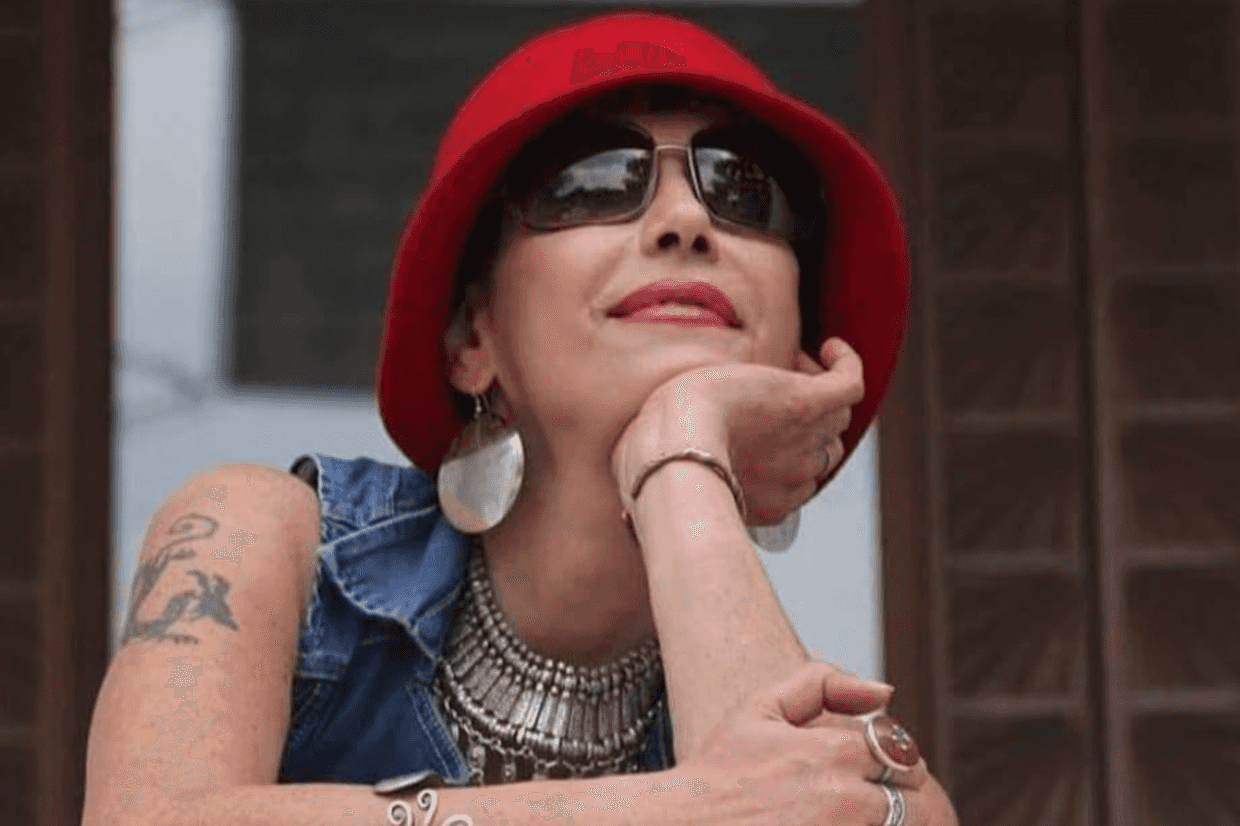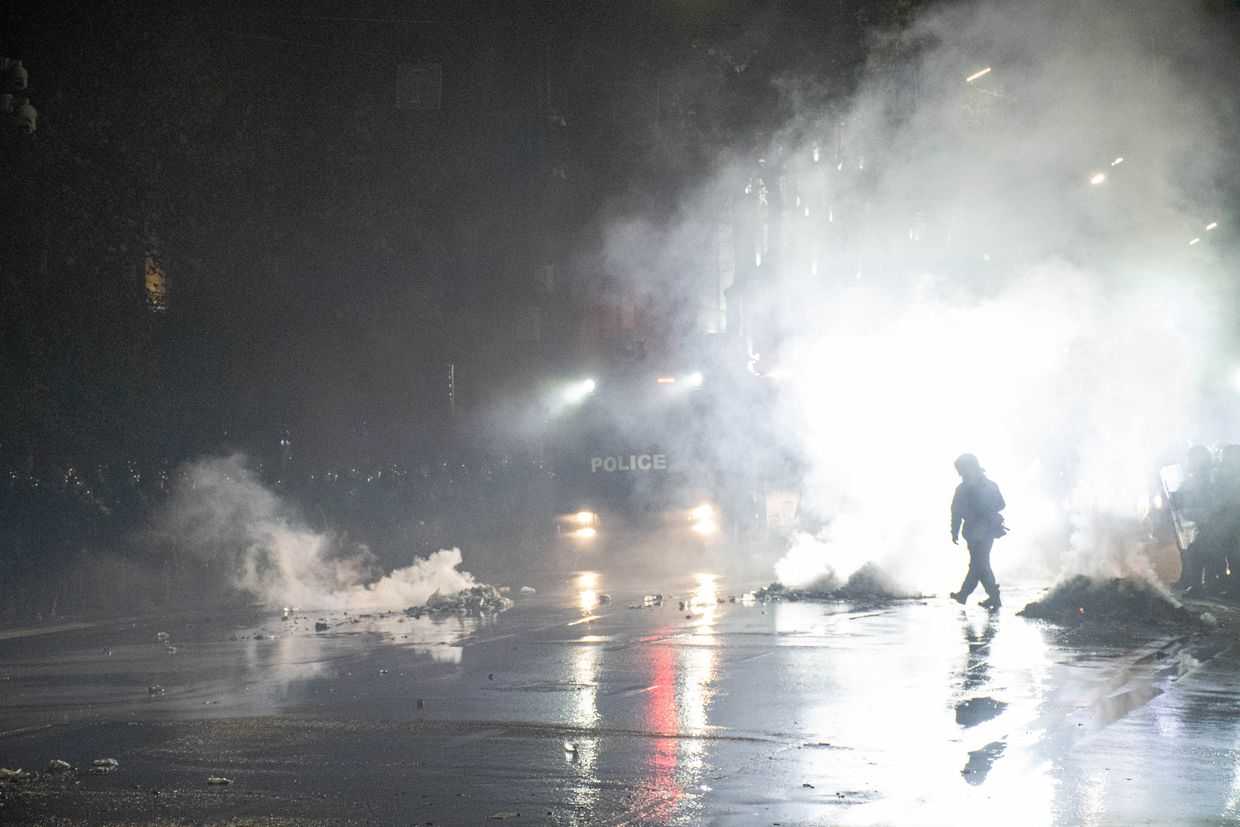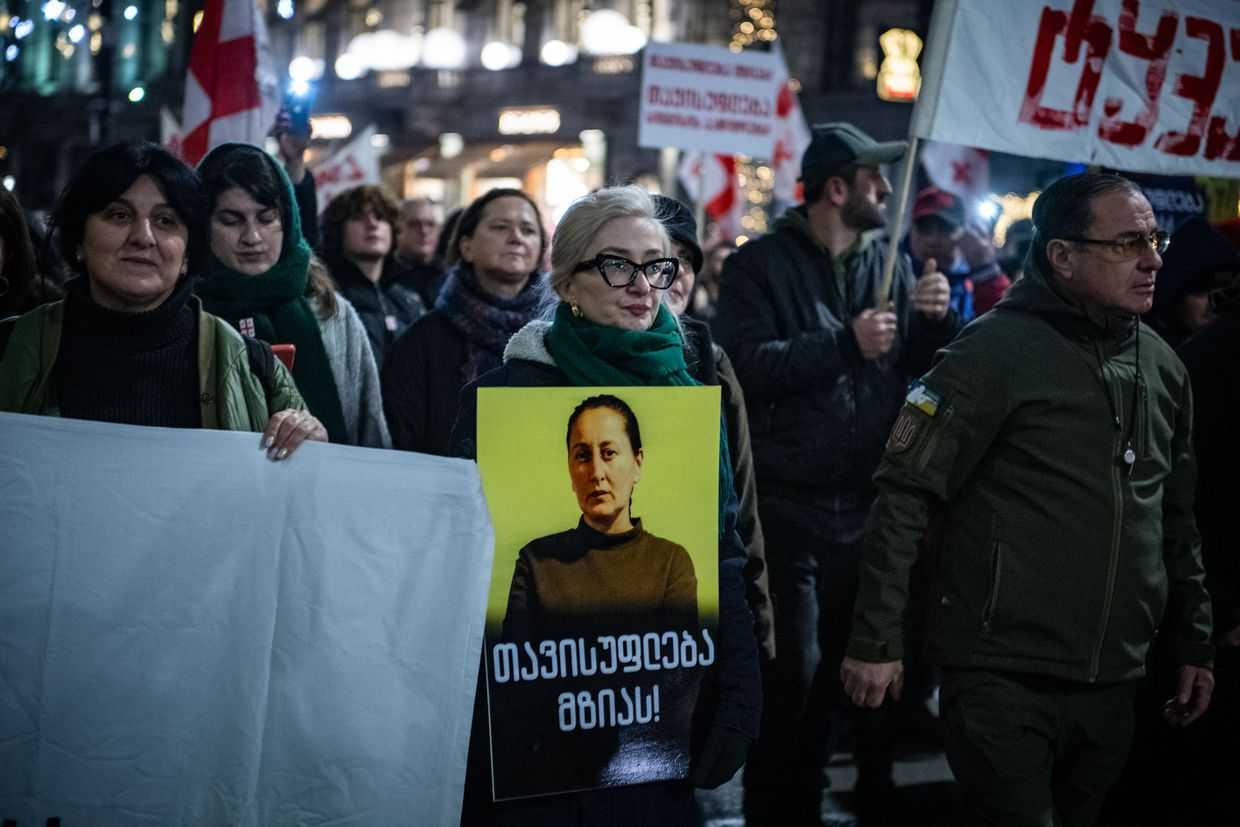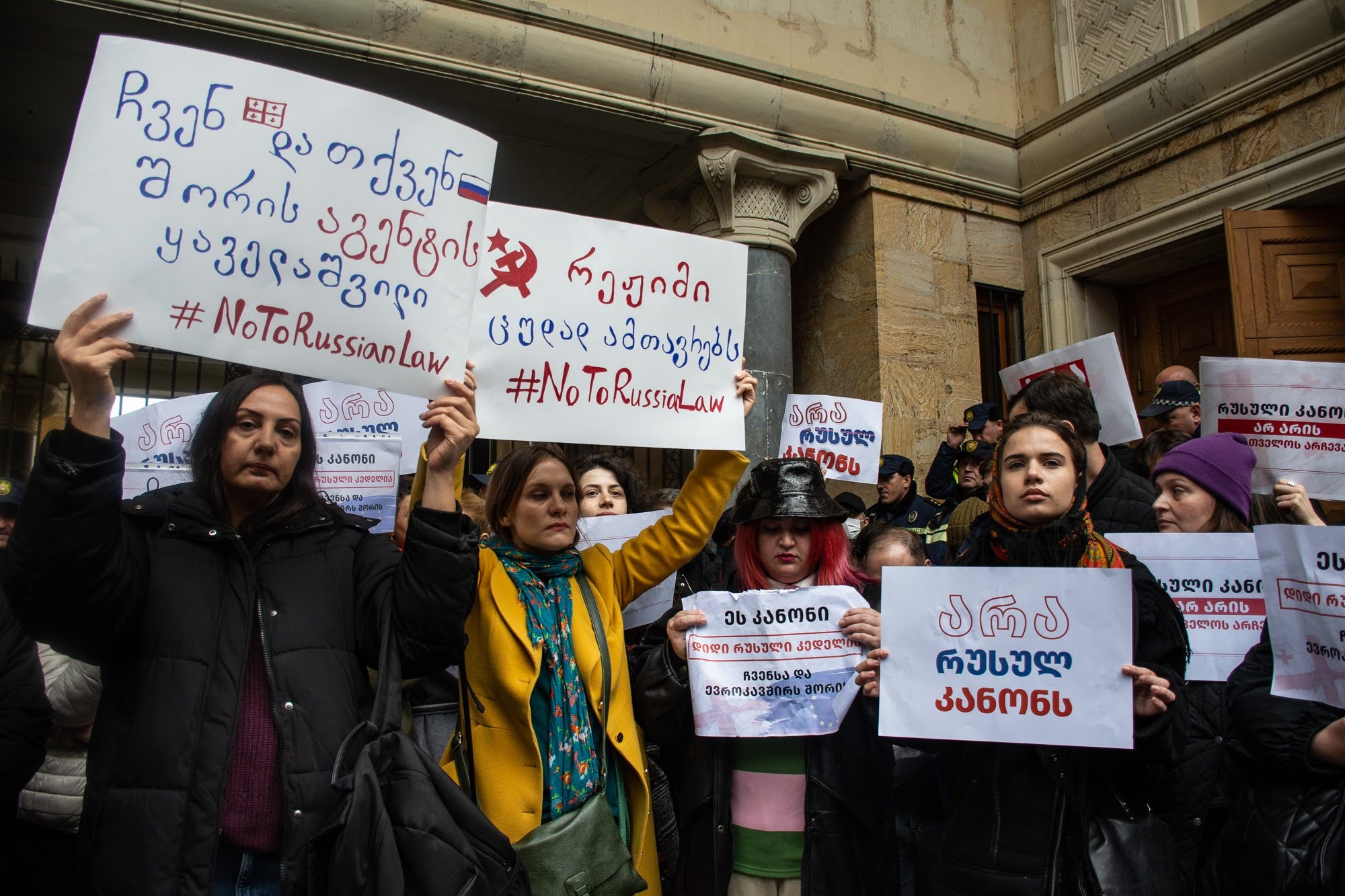
Two drafts of Georgia’s foreign agent law have passed their first committee hearing despite protests and attempts by opposition MPs to disrupt proceedings.
Several opposition MPs were physically thrown out of the hearing on Thursday by parliamentary security guards, including the opposition UNM party chair, Levan Khabeishvili. Two journalists were also arrested by police outside parliament, while others were ejected from the building.
The two versions of the controversial law — which is being supported by the ruling Georgian Dream party — were discussed at the joint session of the Foreign Relations and Defence and Security committees.
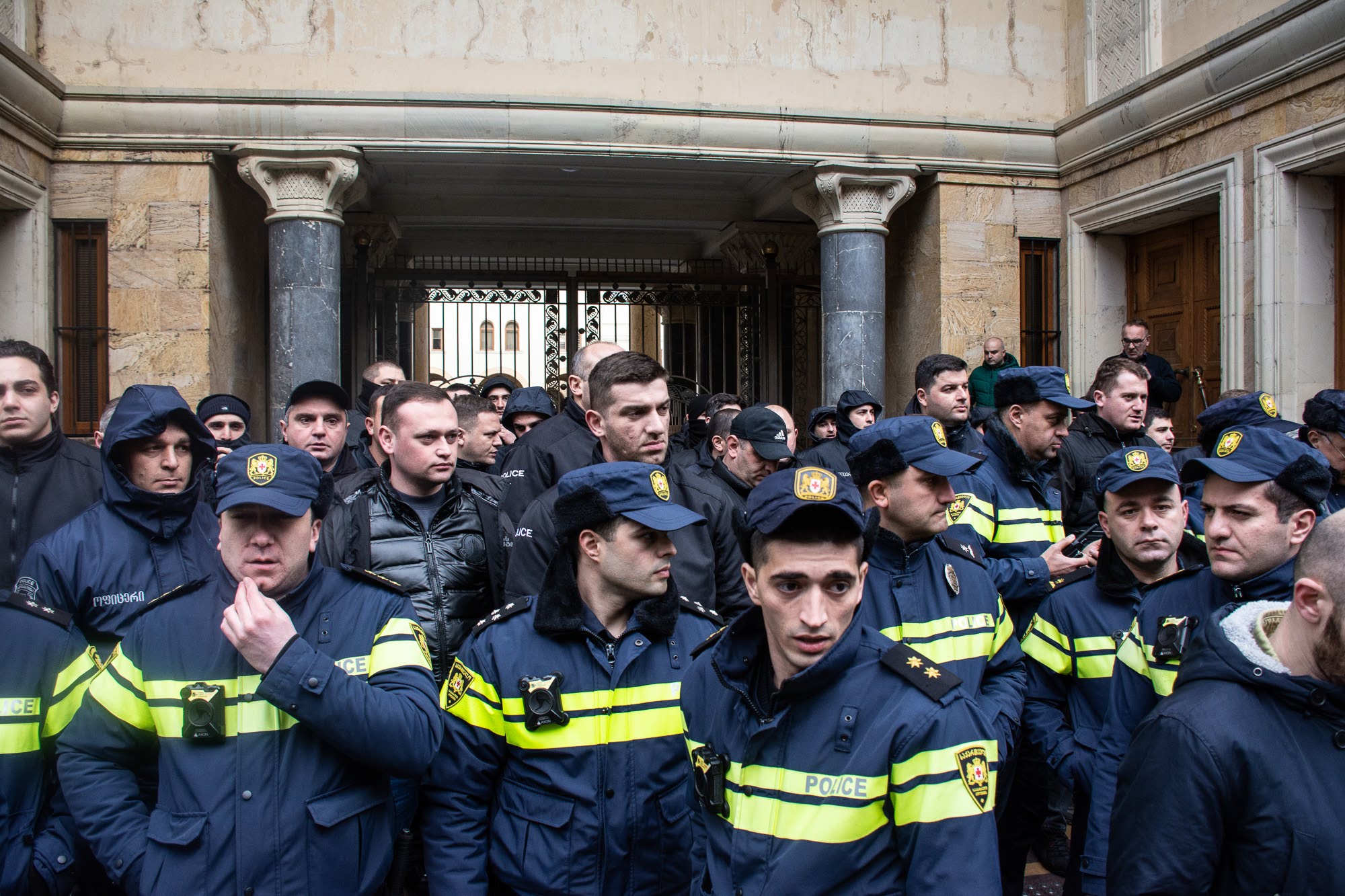
The law would compel civil society groups and media organisations which receive over 20% of their income from abroad to register as ‘agents of foreign influence’, and to submit to monitoring by the Ministry of Justice.
[Read from OC Media: Editorial | Only decisive action can save Georgia’s democracy]
Several hundred journalists and civil society activists gathered outside the parliament as the draft law was being discussed, stating that ‘the Russian law is not Georgia’s choice’.
The draft foreign agent law is similar to one passed by Russia in 2012, which has been used to suppress civil society and stifle criticism of the government.
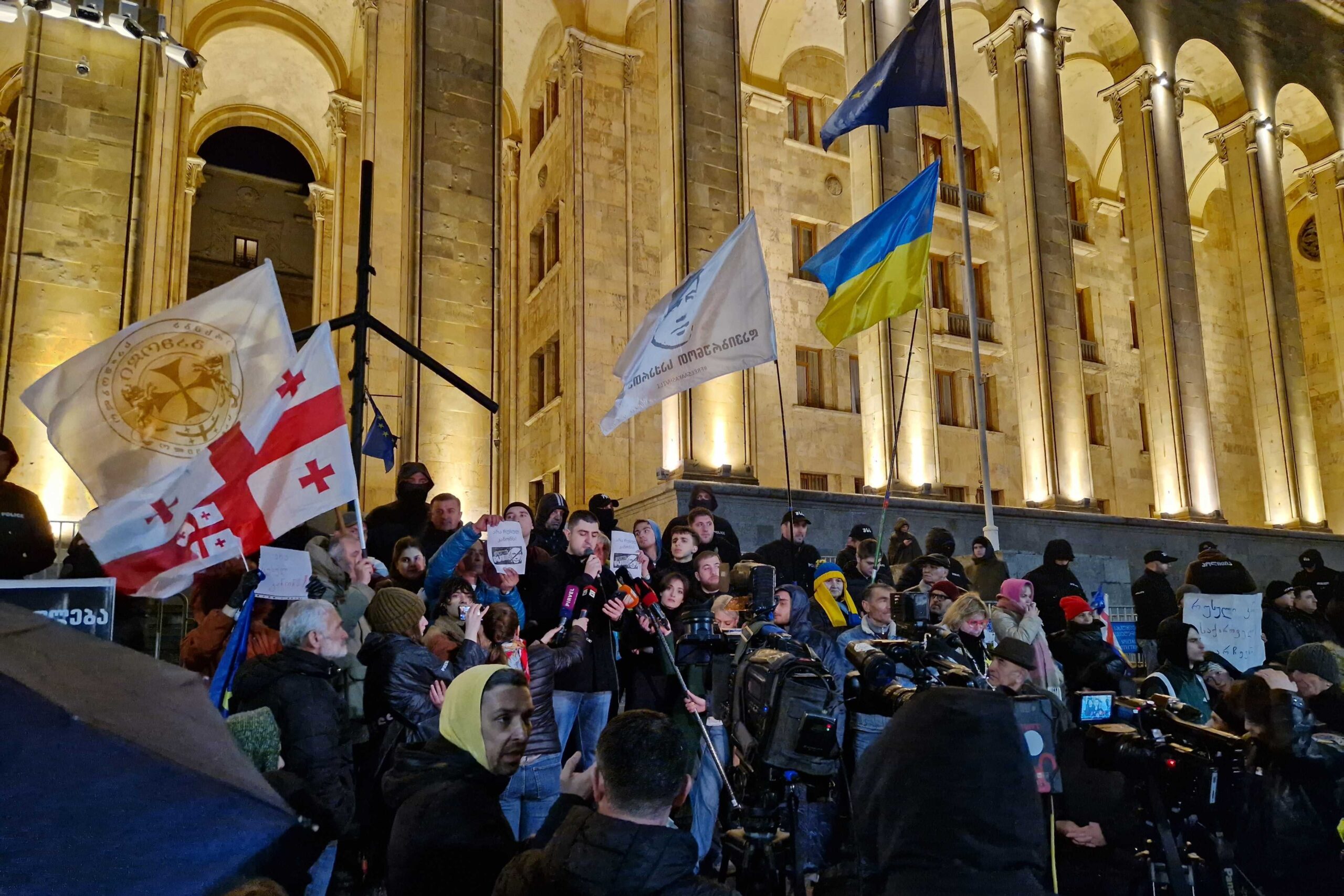
Salome Samadashvili, an MP from the opposition Lelo party, said that the hall chosen for the committee meeting was changed at the last moment to a smaller venue, ‘so that not many people could not enter’.
Many journalists and civil society leaders were prevented from entering, while pro-government figures, including Nana Kakabadze, who heads a pro-government NGO, and Davit Kartvelishvili who is associated with the anti-Western People’s Power group, were allowed in. Journalists, including from On.ge and Formula, were ejected from the building by security, despite having passes entitling them to be there.
Georgian Dream MP Irakli Beraia called the opposition MPs that criticised the bills during Thursday’s hearing ‘spies’.
As the committee hearing ended, protesters gathered outside the entrances to parliament booed ruling party MPs as they left the building.
Protesters are booing cars as they leave the Georgian parliament after MPs approved the two drafts of the foreign agent law at the first committee stage.
More: https://t.co/W8ZpbkAt0r pic.twitter.com/4G4KQkmk69
— OC Media (@OCMediaorg) March 2, 2023
Police made at least 36 arrests.
Those arrested included Zura Vardiashvili, the director of online news site Publika, and Beka Jikurashvili, a reporter from Tabula.
Lika Zakashvil, one of the co-founders of Publika, told journalists at a small gathering outside the Interior Ministry later that evening that police had used unnecessary force while detaining her colleague. She added that he had been arrested only for shouting the word ‘traitors’.
Further committee hearings are planned for Monday.
‘Jeopardising Georgia’s Euro-Atlantic future’
The draft law has come under increasing criticism, both domestically and internationally.
Over 60 media organisations, including OC Media, have vowed not to comply with the law. The penalties for not registering as a foreign agent in the two versions of the bill include either large fines, or up to five years in prison.
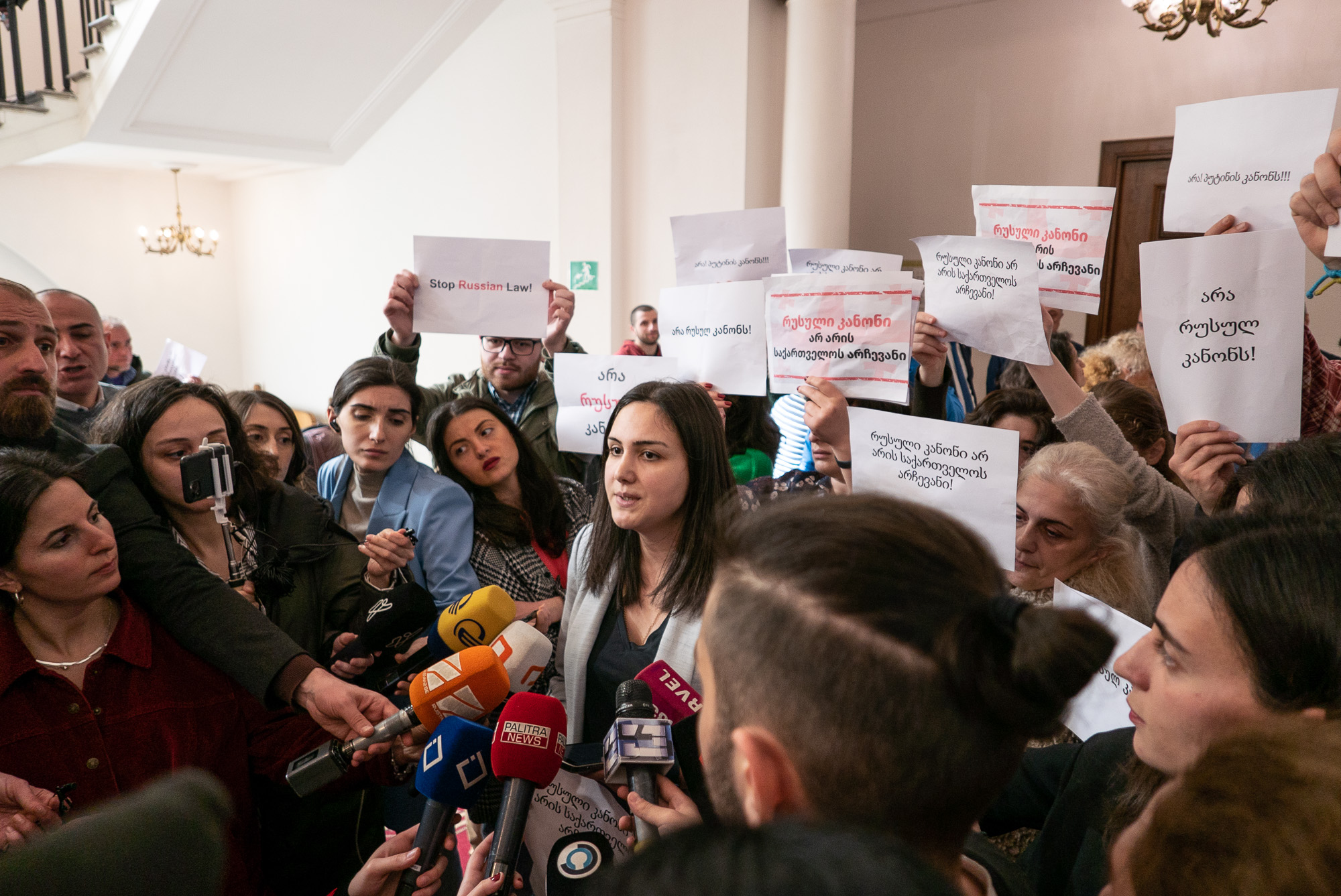
On Wednesday, the EU Ambassador to Georgia, Paweł Herczyński, along with the ambassadors of 19 EU member states, met with the speaker of parliament Shalva Papuashvili.
Following the meeting, Herczyński said the law would go against the recommendations issued by the EU to Georgia if the country wished for its EU membership application to be re-examined. Georgia failed to gain EU candidate status in June 2022.
‘We very clearly stated that this initiative is inconsistent with the values of the European Union, and once again we reiterated that this initiative is in contradiction with at least two points of the recommendations of the European Commission’, he said.
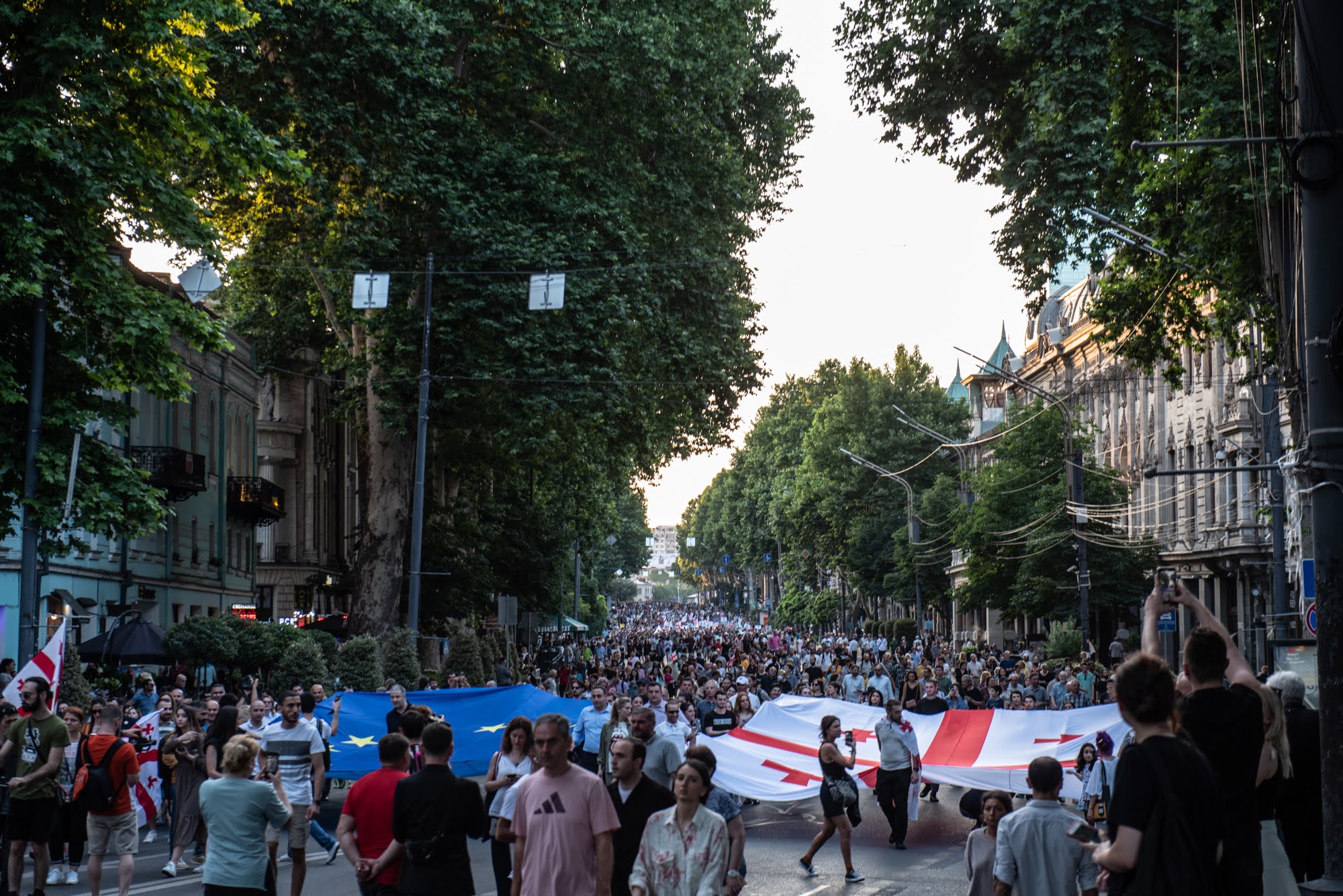
The same day, the Georgian Bar Association stated that the content of the draft law, its timing, and the confrontational background of the discussions around it, risked deepening polarisation and weakening Georgia’s democracy.
On Thursday, US State Department spokesperson Ned Price echoed earlier comments by the US Ambassador to Georgia that whoever voted for the bill would be directly responsible for damaging Georgia’s ‘Euro-Atlantic future’.
Also on Thursday, a group of international relations students at Ivane Javakhishvili Tbilisi State University announced they would boycott lectures by Nika Samkharadze, the foreign relations committee chair. Samkharadze teaches a course on EU foreign policy.
On Wednesday, in a letter to Georgia’s parliamentary chair, the Council of Europe’s Commissioner for Human Rights, Dunja Mijatović, warned the law could have ‘a serious chilling effect’ on civil society in Georgia.
On Tuesday, President Salome Zurabishvili told journalists that she was ‘categorically against’ the law, and vowed to veto it.
‘It is a direct law to separate us from Europe. Therefore, it is unacceptable for me’, she said.
Parliament can overturn a presidential veto.
‘The UN, the US, the EU, the Council of Europe, numerous member states, friends of Georgia from around the world have all weighed in to urge the government, and parliament, not to proceed with this proposal’, she said.
Two days later, on the first day of parliamentary deliberations on the bills, Zurabishvili proposed to recognise activities of political parties that contradict principles of Georgia’s constitution and ‘the chosen path of our country and people’ as ‘anti-constitutional’. Georgia’s constitution stipulates that the government do everything possible to secure EU and NATO membership.
Opposition parties Girchi — More Freedom, Strategy Aghmashenebeli, and Droa, have started a petition hoping to collect ‘a million signatures for the European Union’. The petition calls on the European Union to begin negotiations on Georgia’s EU candidacy with the opposition, instead of the government.



